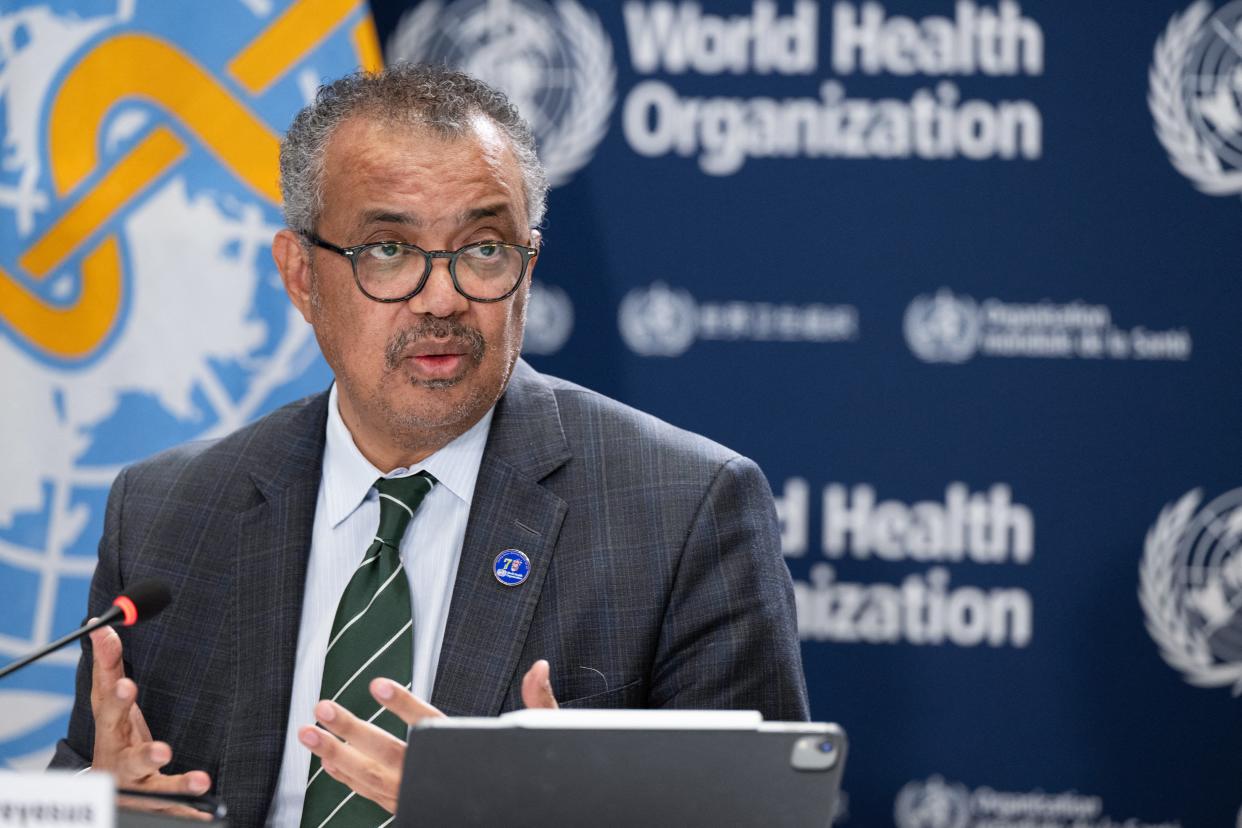WHO hasn't demanded surveillance powers; claim distorts proposed pandemic treaty | Fact check

The claim: The WHO demanded surveillance powers to monitor every person on earth
A Feb. 1 article published by The People's Voice claims the World Health Organization called on the world to grant it new powers to help prevent the spread of disease.
“WHO Demands Surveillance Powers to Monitor Every Man, Woman & Child For ‘Disease Control,’” reads the headline of the article.
An Instagram post with a similar version of the claim accumulated more than 2,000 likes in four days before it was deleted.
More from the Fact-Check Team: How we pick and research claims | Email newsletter | Facebook page
Our rating: False
A WHO spokesperson said the claim is false. It distorts recommendations found in a draft of a proposed treaty, confuses public health surveillance with military surveillance and originated on a website that routinely publishes misinformation.
Claim distorts recommendations in proposed treaty
The article claims the WHO made the demand for surveillance powers in the latest draft of its international pandemic treaty, which WHO member nations agreed to develop in 2022 to prepare for future pandemics. An early draft of that proposed accord was published in February 2023, but the final draft isn’t expected to be considered until May.
But the treaty does not include a demand for the power to surveil every person on the planet. The claim in the Facebook post is false and distorts recommendations in the draft, WHO spokesperson Tarik Jasarevic told USA TODAY.
Fact check: False claim World Health Organization encourages 9-year-olds to have sex
“There has been a strong disinformation campaign about the pandemic treaty or accord that the WHO member states are currently negotiating,” Jasarevic said in an email.
The article claims WHO Director-General Tedros Adhanom Ghebreyesus said the WHO needs additional surveillance powers to track the public and monitor “the health of people, animals and ecosystems.”
While that specific phrase does appear on Page 6 of the 32-page treaty draft, the claim confuses the meaning of surveillance in a public health context with how the term is used in a law enforcement or military setting. While the word “surveillance” appears in the document six times, none of those mentions has anything to do with spying or covertly tracking people. It's about monitoring health data.
The WHO describes public health surveillance as the “continuous and systematic collection, orderly consolidation and evaluation of pertinent data with prompt dissemination of results to those who need to know, particularly those who are in a position to take action.”
Nations adopting the WHO pandemic plan would be encouraged to set up global, regional and national networks to share information about diseases and their genomes – particularly those with the potential to develop into pandemics, the proposed accord states.
The People's Voice, previously known as NewsPunch, has repeatedly published fabricated stories. Among the many debunked by USA TODAY in 2024 are false claims that New Hampshire banned “chemtrails" and that former South Carolina Gov. Nikki Haley said only Bill Gates “can save humanity.”
The proposed WHO accord has repeatedly been the subject of misinformation. Among the false claims debunked by USA TODAY are assertions that it would allow the WHO to forcibly vaccinate the population and that it gives the WHO control over pandemic policies in the U.S.
USA TODAY reached out to The People’s Voice but did not immediately receive a response.
Our fact-check sources:
Tarik Jasarevic, Feb. 6, Email exchange with USA TODAY
WHO, Feb. 1, 2023, Zero draft of the WHO CA+ for the consideration of the Intergovernmental Negotiating Body at its fourth meeting WHO convention
WHO, accessed Feb. 6, Public health surveillance
Thank you for supporting our journalism. You can subscribe to our print edition, ad-free app or e-newspaper here.
USA TODAY is a verified signatory of the International Fact-Checking Network, which requires a demonstrated commitment to nonpartisanship, fairness and transparency. Our fact-check work is supported in part by a grant from Meta.
This article originally appeared on USA TODAY: Claim of WHO's surveillance power demand distorts treaty | Fact check

